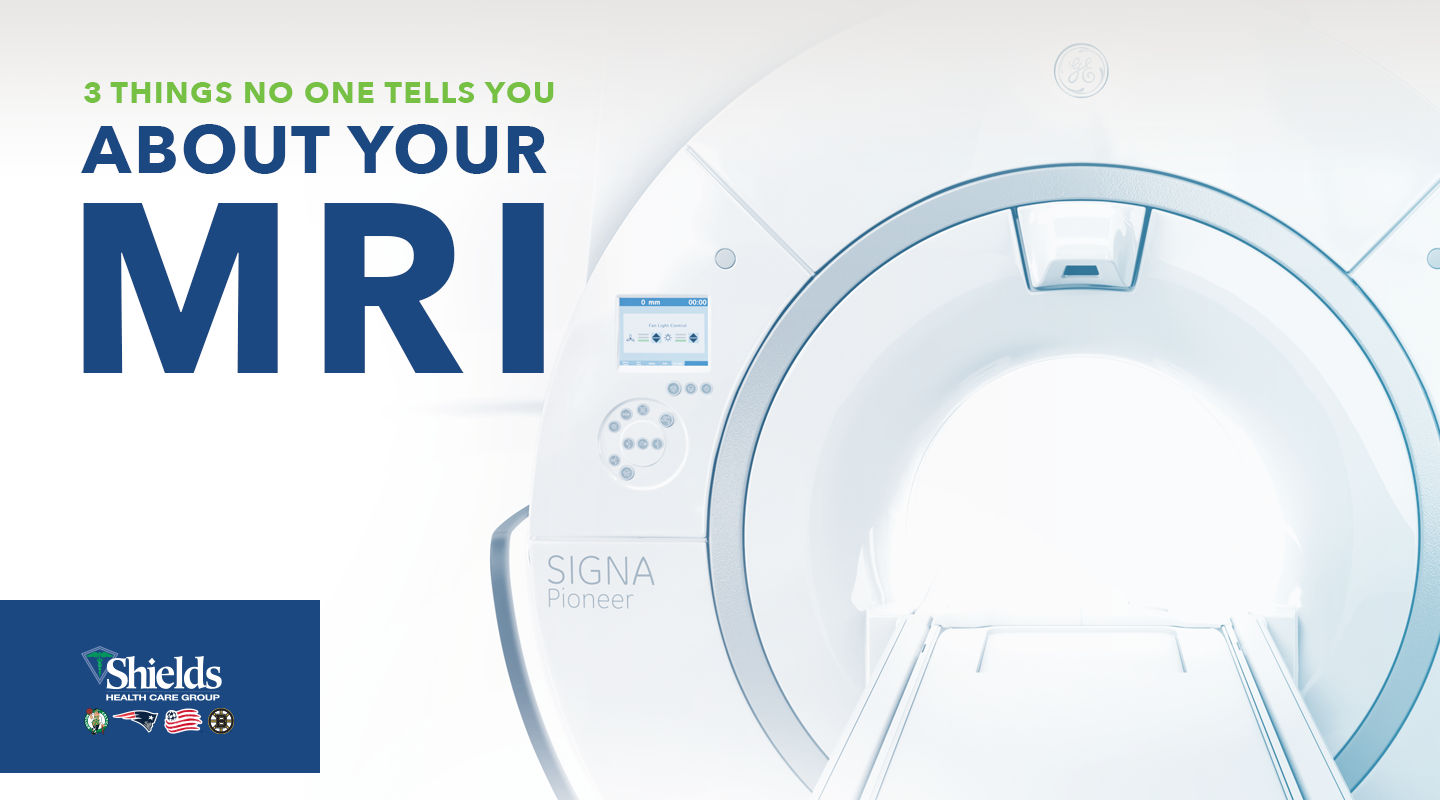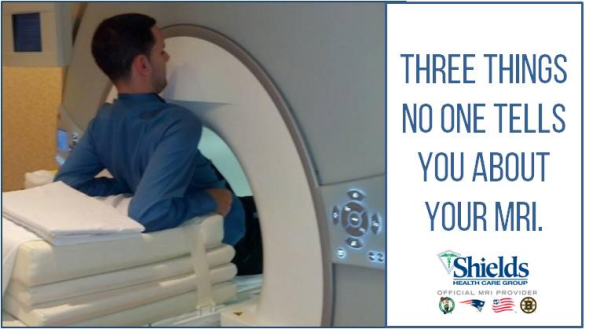
An MRI is a relatively common diagnostic procedure today. In fact, about 10% of the population needs an MRI each year. So if you're one of them, your doctor probably got you prepared with some basic information about the test, including where it will take place and what body part they'll scan.
Shields MRI scans one in every three patients in Massachusetts so we have a lot of experience with helping patients prepare. Here are three things that we hear ALL the time from patients who say they wish they knew this BEFORE they came for their MRI.
- MRIs are NOISY! Many MRI patients are prepared for how they'll feel during the MRI experience, but not what they'll hear - which is a repetitive clicking noise when the scanner is taking a picture. All MRIs make this noise and its a result of the way they obtain the image - through the use of strong magnetic fields and radio waves. The magnetic field is created by running electrical current through a coiled wire; when the current is switched on to create a picture, the force on the coil is intense causing it to expand, which makes a "click" noise. When the MRI is creating an image, the current is switched on and off rapidly causing the noise that sounds like this: Click here. The good news is that this noise is only heard during a "sequence" which means when the actual pictures are being taken. Typically these sequences last about 3-6 minutes at a time. Further good news is that Shields MRI provides their patients complimentary ear plugs and satellite radio to help soften the noise throughout. Patients aren't usually bothered by the noise and newer technology (1.5T high-field MRIs for example) are often less noisy than older MRIs.
- MRIs can be EXPENSIVE! While this might not be breaking news because of the reputation MRI has for being an expensive test, what many patients may not know is that pricing can vary dramatically depending on where you get your MRI scan. No one is willing to compromise quality to save money, but educating yourself in advance of the exam can assure you get both quality and price for your scan. In the Boston-area in particular, you can see the price for the SAME MRI procedure ranging from around $500 to $5,000 for an insured patient. Generally speaking, hospitals charge a lot more for an MRI than independant MRI providers like Shields. Shields is usually about 60% less than hospital providers and provides the very best MRI equipment and service. Make sure you ask your provider how much an MRI will cost so you aren't surprised by your bill - especially if you are on a high-deductible plan. For Shields MRI price savings calculator, click here.
- You can ask for an OPEN-BORE MRI! Shields MRI conducted a study of our patients and found that 58% of you were fearful to get your MRI because of an axiety related to claustrophobia or fear of tight spaces. We also learned that most of you never told your doctor about your fear! Because Shields has a very helpful solution for patients who suffer from claustrophobia, this was extremely concerning to us. Patients who fear tight spaces can request one of Shields 1.5T or 3T high-field, open MRI machines from GE and Siemens, the leading manufacturers for MRI equipment. These MRI machines are designed to maximize patient comfort with an open-ended, short bore and a 70 cm opening that allows a large field-of-view during the scan. In addition, our staff of technologists are well-trained on special techniques that will calm the patient throughout the scan. Finally, Shields MRI encourages patients to invite a support member to accompany them into the scanning room to hold their hand for the entire procedure.
So there you have it - three things that patients tell us they wish they knew in advance of their MRI. All this information is available for our patients on our website, shields.com. We hope that you won't need an MRI any time soon, but if you do, that you'll choose Shields.
Picture of a patient given a special protocol for added comfort since he couldn't lie flat.

source: http://www.caltech.edu/content/question-month-how-does-mri-work-and-why-it-so-noisy



